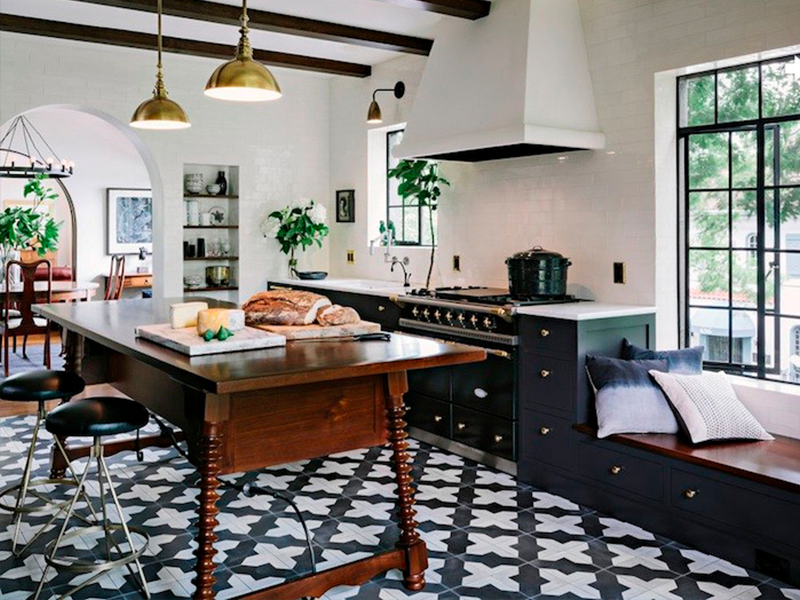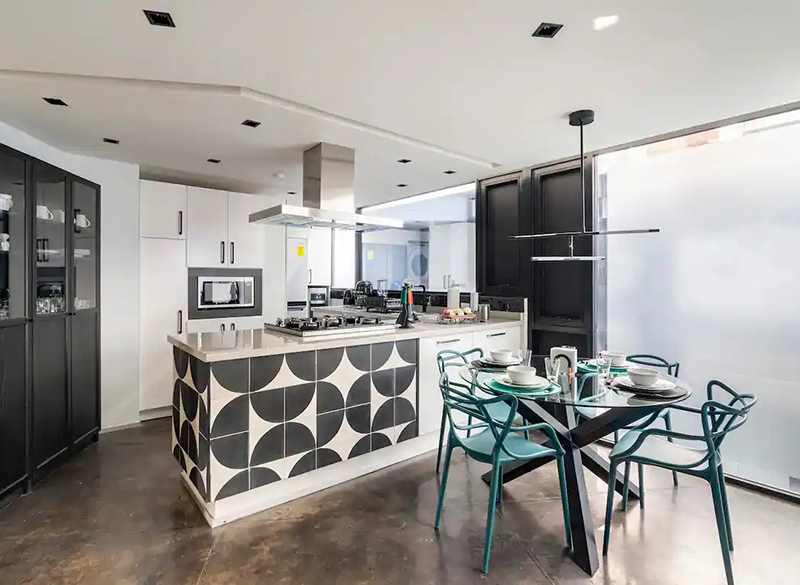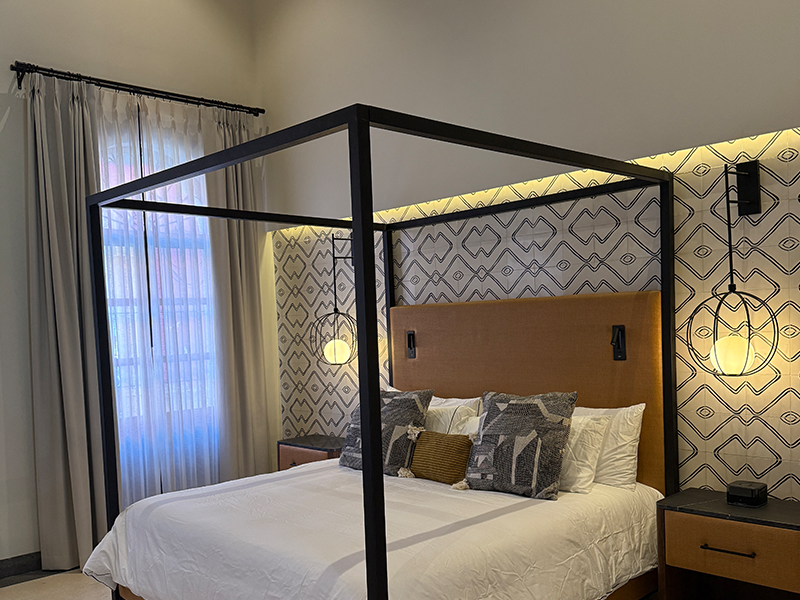Handmade Moroccan Tile: A Timeless Choice for Interior Design
Meta Description: Explore the enduring beauty and versatility of handmade Moroccan tile in interior design. Discover how these artisan tiles enhance kitchens, bathrooms, and living spaces.
Introduction: The Allure of Handmade Moroccan Tile
Are you seeking to infuse your home with a touch of timeless elegance and cultural richness? Handmade Moroccan tile offers a unique blend of artistry and functionality that can transform any space. From vibrant patterns to intricate designs, these tiles bring a piece of Moroccan heritage into your home.
What Are Handmade Moroccan Tiles?
Handmade Moroccan tiles, often referred to as zellige or encaustic cement tiles, are crafted using traditional techniques passed down through generations. Each tile is individually made by skilled artisans, resulting in unique pieces that showcase slight variations in color and texture—hallmarks of their authenticity.
Key Characteristics:
-
Material: Made from natural clay or cement, depending on the type.
-
Finish: Typically glazed (zellige) or matte (cement), offering different aesthetic appeals.
-
Design: Features geometric patterns, floral motifs, and vibrant colors.
-
Durability: Known for their longevity and resistance to wear.
Why Choose Handmade Moroccan Tiles for Accent Walls
Accent walls serve as focal points in interior design, and Moroccan tiles are perfect for this purpose. Their intricate patterns and rich colors can add depth and character to any room.
Benefits:
-
Visual Impact: Creates a striking feature that draws the eye.
-
Versatility: Suitable for various rooms, including living rooms, bedrooms, and entryways.
-
Cultural Touch: Adds a sense of global flair and sophistication.
Applications: Walls vs. Floors
Handmade Moroccan tiles are versatile and can be used on both walls and floors, each offering unique advantages.
Wall Applications:
-
Kitchens: Enhance backsplashes with vibrant patterns.
-
Bathrooms: Create spa-like atmospheres with intricate designs.
-
Living Areas: Add depth to fireplaces or feature walls.
Floor Applications:
-
Entryways: Make a bold first impression.
-
Kitchens: Combine durability with aesthetic appeal.
-
Bathrooms: Ensure slip resistance with textured finishes.
Design Styles: From Modern to Rustic
Handmade Moroccan tiles complement a range of interior design styles.
Modern House:
-
Design: Minimalist patterns with neutral tones.
-
Application: Sleek kitchen backsplashes or bathroom walls.
Farmhouse:
-
Design: Warm colors with traditional motifs.
-
Application: Rustic kitchen floors or cozy fireplace surrounds.
Ranch House:
-
Design: Earthy hues with geometric patterns.
-
Application: Open-plan living areas or outdoor patios.
Rustic House:
-
Design: Natural textures with handcrafted appeal.
-
Application: Bathroom walls or kitchen islands.
Custom Design Possibilities with Original Mission Tile
At Original Mission Tile, we offer extensive customization options to bring your vision to life.
Customization Options:
-
Patterns: Recreate historical designs or develop new ones.
-
Colors: Choose from a wide palette to match your decor.
-
Shapes: Select from various shapes, including hexagons, squares, and rectangles.
Collaborate with our artisans to create tiles that reflect your personal style and meet your project’s specific needs.
Handmade Moroccan Tiles vs. Other Tile Types
Understanding the differences between Moroccan tiles and other materials helps in making informed decisions.
| Feature | Moroccan Tiles | Ceramic Tiles | Porcelain Tiles |
|---|---|---|---|
| Durability | High | Moderate | High |
| Customization | Extensive | Limited | Limited |
| Finish | Matte/Glazed | Glossy/Matte | Glossy/Matte |
| Maintenance | Requires sealing | Low | Low |
| Cost | Moderate to High | Low | Moderate |
Showcasing Our Handmade Process
At Original Mission Tile, each tile is crafted by skilled artisans, ensuring quality and uniqueness.
Process Overview:
-
Design Creation: Developing patterns and selecting colors.
-
Mold Preparation: Crafting molds for the desired shapes.
-
Layering: Pouring pigmented cement into molds.
-
Pressing: Applying pressure to form solid tiles.
-
Curing: Allowing tiles to set and gain strength.Grout Magnificent
This meticulous process results in tiles that are not only beautiful but also durable.
Why Architects & Designers Love Working with Us
Professionals choose Original Mission Tile for several reasons:
-
Quality: Consistent craftsmanship ensures reliable products.
-
Customization: Ability to meet specific design requirements.
-
Support: Dedicated team assisting from concept to installation.
-
Sustainability: Eco-friendly practices align with green building standards.
Tips for Choosing Tile Patterns and Colors
Selecting the right pattern and color enhances the overall design.
Considerations:
-
Space Size: Large patterns suit spacious areas, while smaller patterns fit compact spaces.
-
Color Scheme: Choose colors that complement existing decor.
-
Lighting: Lighter colors brighten dim areas; darker tones add warmth.
-
Style Consistency: Ensure patterns align with the room’s theme.
Bathroom and Kitchen Use Cases
Handmade Moroccan tiles are ideal for both bathrooms and kitchens due to their durability and aesthetic appeal.
Bathrooms:
-
Floors: Slip-resistant surfaces enhance safety.
-
Walls: Create spa-like environments with elegant designs.
Kitchens:
-
Backsplashes: Protect walls while adding visual interest.
-
Floors: Withstand heavy foot traffic and spills.
How to Order Custom or In-Stock Tiles from Us
Ordering from Original Mission Tile is straightforward:
-
Browse Collection: Visit www.originalmissiontile.com to explore designs.
-
Select Tiles: Choose from in-stock options or request custom designs.
-
Request Quote: Contact us for pricing and lead times.
-
Place Order: Confirm your selection and finalize the purchase.
-
Delivery: Receive your tiles, ready for installation.
Frequently Asked Questions
How long does cement tile last?
With proper care, cement tiles can last for decades, maintaining their beauty and integrity.
Is cement tile high maintenance?
Cement tiles require sealing and periodic resealing to protect against stains and moisture. Regular cleaning with mild detergent is recommended.
Do cement tiles need grout?
Yes, grout is necessary to prevent moisture penetration and ensure stability. A narrow grout line is often preferred for aesthetic reasons.
Are cement tiles more expensive than ceramic?
Cement tiles are typically more expensive than ceramic tiles due to their handcrafted nature and customization options.
Are concrete tiles expensive?
Concrete tiles can be more costly upfront but offer long-term durability and unique design possibilities.
Can you use cement tile in a shower?
Yes, cement tiles are suitable for shower walls and floors when properly sealed to prevent water absorption.
Are concrete tiles any good?
Concrete tiles are durable, customizable, and eco-friendly, making them a good choice for various applications.
Does cement tile scratch easily?
Cement tiles are durable but can scratch if not properly sealed or maintained. Using mats and
Does cement tile scratch easily?
Cement tiles are durable, but they can scratch or etch if exposed to abrasive cleaners or heavy furniture without protection. Regular sealing and using furniture pads can prevent this.
What are the disadvantages of cement tiles?
-
Maintenance: Requires sealing and occasional resealing.
-
Installation: Must be installed by professionals to prevent cracking.
-
Weight: Heavier than ceramic, requiring a stable subfloor.
-
Cost: Higher upfront cost compared to mass-produced tiles.
Where are cement tiles used?
Cement tiles are incredibly versatile. They are commonly used in:
-
Kitchen backsplashes
-
Bathroom floors and shower walls
-
Living room accent walls
-
Entryways and foyers
-
Outdoor patios and walkways
-
Commercial lobbies, cafes, and boutique stores
What is the difference between ceramic and cement tiles?
| Feature | Cement Tile | Ceramic Tile |
|---|---|---|
| Production | Handcrafted, cured | Machine-made, kiln-fired |
| Finish | Matte or satin | Usually glazed |
| Customization | Highly customizable | Limited design options |
| Durability | Thicker and longer-lasting | Less impact resistant |
| Maintenance | Needs sealing | Low maintenance |
| Cost | Higher due to craftsmanship | More budget-friendly |
Is cement flooring cheaper than tiles?
While raw cement flooring can be cheaper, decorative cement tiles are often more expensive than basic ceramic or porcelain tiles. However, cement tiles offer artistic value and longer lifespan, making them a worthwhile investment.
Conclusion: Handmade Moroccan Tile — A Design Legacy for Every Space
Handmade Moroccan tiles offer more than just surface beauty. They carry centuries of artistic tradition, each piece echoing the work of skilled artisans who create every tile by hand. Whether you’re remodeling your kitchen, redesigning a bathroom, or revamping a commercial space, these tiles offer durability, elegance, and cultural depth.
At Original Mission Tile, we are proud to produce authentic, high-quality, handmade Moroccan and cement tiles in a wide range of patterns, colors, and custom designs. From cozy ranch houses to sleek contemporary homes, our tiles bring warmth, character, and timeless design into every project.



